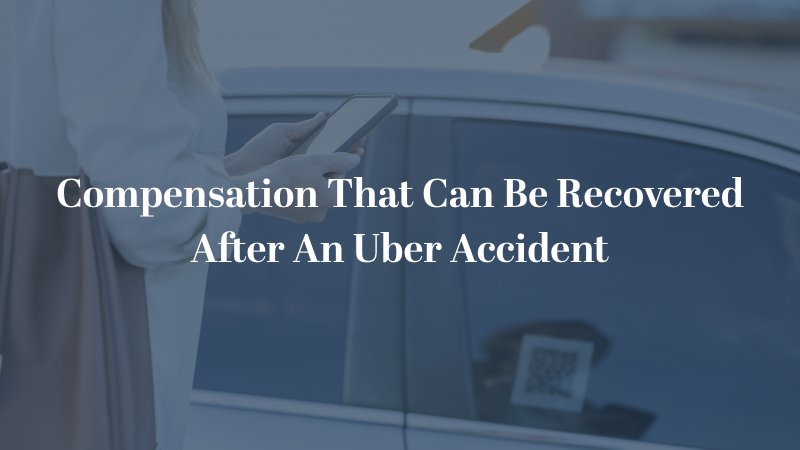Navigating the aftermath of an Uber accident can be a journey filled with complexities. A key question that inevitably surfaces is: who holds responsibility for the incident? With multiple parties involved, including Uber drivers, passengers, and occasionally pedestrians or other motorists, determining culpability isn’t always straightforward. In Uber accidents, the most common parties that may be liable include the following:
The Uber Driver
If an Uber driver caused the accident due to negligence, for example by distracted driving or speeding, then they would typically bear at least some responsibility. It’s important to note that as independent contractors rather than employees of Uber, drivers generally have their own auto insurance policy—in addition to coverage provided by Uber depending on the circumstances—that may come into play here.
Another Driver
On another hand, if another driver was at fault for the crash—let’s say they ran a red light or ignored a stop sign—their auto insurance should cover damages under most circumstances. However, if their policy isn’t enough to cover all costs, or worse yet they’re uninsured, you might need assistance from Washington D.C rideshare accident lawyers or insurers familiar with rideshare accidents.
Passengers
The responsibility doesn’t always lie with just the drivers involved in an accident. In some situations, passengers can also be held liable for an accident. For example, if a passenger in an Uber vehicle distracts the driver and causes an accident, they could be found negligent and responsible for the damages.
The Vehicle Manufacturer
In some cases, the vehicle manufacturer may be deemed responsible for an accident due to a flaw or defect in the car itself. Vehicles can have issues related to their design or even the parts and systems that make them operate. When these issues result in an accident, the vehicle manufacturer may be held accountable. Some common examples include defects in brakes, tires, steering mechanisms, and safety equipment like airbags or seat belts.
Government Entity
Government entities may also share responsibility in an Uber accident. The local municipality has an obligation to maintain safe roads and provide suitable infrastructure for driving. If traffic lights malfunction, roads have potholes or missing signs, or there are issues with road design, the government agency in charge of that specific aspect might be held accountable for the accident.

Compensation That Can Be Recovered After an Uber Accident
In the event of an Uber accident, you as a rider may have the right to recover three types of damages: economic, non-economic and in rare cases, punitive.
Economic Damages
Economic damages refer to out-of-pocket expenses which are quantifiable. They can include things like medical bills from injuries sustained during the accident — both immediate care and future rehabilitation costs. It also encompasses lost wages due to your inability to work because of injuries, as well as property damage.
Non-Economic Damages
Non-economic damages are more subjective but just as impactful on your life after an accident. These address intangible losses that don’t come with a specific price tag such as pain and suffering or emotional distress caused by your experience or any resulting disability.
Punitive Damages
Punitive damages, on the other hand, are less common in Uber accidents. These are intended to punish the offending party for particularly reckless behavior and deter such conduct in future.
Contact Lightfoot Law Today
Ultimately, it’s essential to understand that Uber accidents can be complex due to the involvement of various parties, each with their own insurance policies. If you’ve been involved in such an incident, recognizing who is responsible and understanding what kind of damages you may be entitled to are pivotal first steps. If you’ve experienced an accident and need help, contact us today to schedule a free consultation.